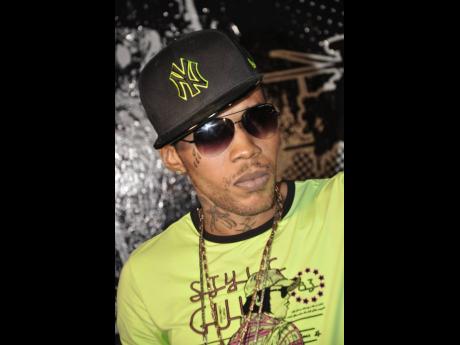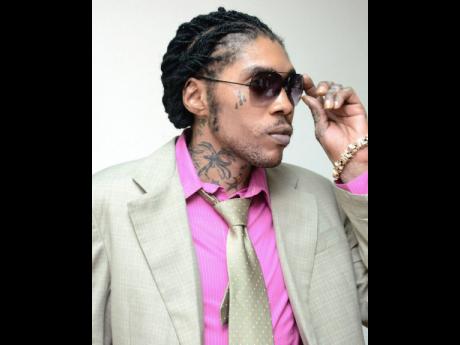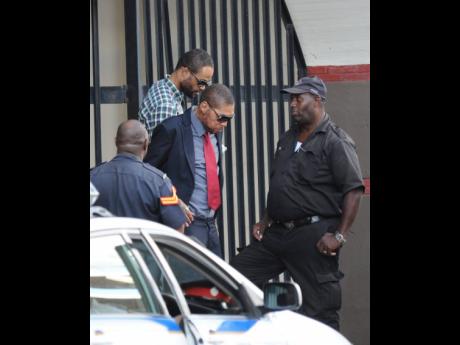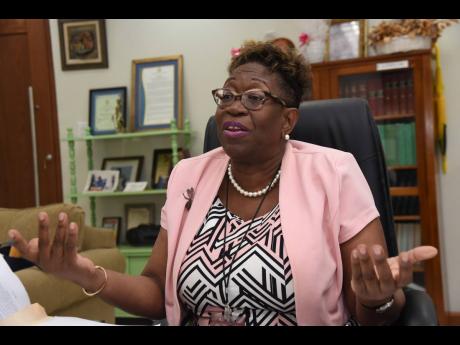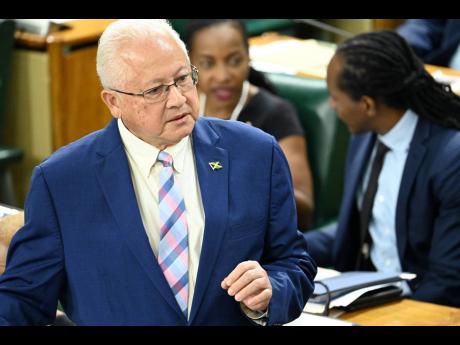Jury-tampering dilemma
- Kartel appeal case exposes deficiency in Jamaican laws - Lawmakers to amend legislation to close gap that allows accused to benefit from compromised jurors
Amid fears that the decision to overturn the murder conviction of popular entertainer Vybz Kartel and co-accused has exposed a major defect in existing laws, Jamaican authorities are now moving to hastily plug the gap that could allow accused...
Amid fears that the decision to overturn the murder conviction of popular entertainer Vybz Kartel and co-accused has exposed a major defect in existing laws, Jamaican authorities are now moving to hastily plug the gap that could allow accused criminals to benefit from jury tampering.
The Government is now moving to amend the Jury Act to mirror the United Kingdom’s (UK) Criminal Justice Act 2003, which permits judges – in certain circumstances – to discharge a jury and continue the trial alone once they are satisfied that the panel of jurors is tainted.
Section 46 of the UK legislation stipulates that the presiding judge must first indicate to all parties that he is minded to discharge the jury; the basis for his decision; and allow them to make representations on the issue.
The absence of a similar legislation in Jamaica coupled with the judgment in the Vybz Kartel and co-accused murder appeal could “usher in” a new dispensation locally where accused criminals could deliberately contaminate a jury then benefit from their actions by having their cases tossed out, legal experts warned.
“For instance, John Doe would be on trial for murder. John Doe gets his cronies to taint the jury so that the judge now has to discharge the jurors. And then guess what? He walks,” argued one senior attorney who did not want to be named.
“So by his own act, John Doe causes the tainting and contamination of the jury and he walks. That would not make sense, and that would not be in the interest of justice. We take too long in Jamaica to reform our laws.”
PRESERVING JAMAICA’S JUDICIAL PROCESS
Chief prosecutor Paula Llewellyn shared the same concern, cautioning that “in light of recent events” – a reference to the Kartel case – the absence of a similar legislative provision in Jamaica would be “inimical” to the administration of justice and the confidence citizens should have in it.
Further, she said the proposed changes would give judges an “avenue” to ensure that the integrity of the country’s judicial process is preserved.
“If we don’t follow suit, you could have the ends of justice being thwarted because of jury tampering if it happens again,” said Llewellyn, the director of public prosecutions, referring to the UK law.
“It may cause others who are of a corrupt intent to attempt to pervert the course of justice in this way. It, perhaps, may usher in this sort of modus operandi being replicated,” Llewellyn opined during an interview with The Sunday Gleaner on Friday.
On Thursday, the UK’s Privy Council quashed the 2014 murder conviction of Vybz Kartel, real name Adidja Palmer; fellow entertainer ‘Shawn Storm’, real name Shawn Campbell; Kahiro Jones; and Andre St John, also known as ‘Mad Suss’, for the murder of Clive ‘Lizard’ Williams.
In its ruling, the Privy Council noted that it had “considerable sympathy” for the dilemma faced by the presiding judge in Kartel’s murder trial after the attempts to tamper with the jury were discovered, but said allowing the tainted juror to continue in the case was “fatal to the verdict”.
The UK law lords sent the case back to the Court of Appeal in Jamaica for a retrial to be considered.
The Privy Council also warned of the legal pitfalls that could result from the absence of a similar UK-type legislative provision in Jamaica.
“It [Privy Council] is very conscious of the dangers of deliberate attempts to derail criminal trials, in particular in their closing stages, by engineering situations in which it becomes necessary to discharge the jury,” the British judges wrote in their judgement.
“However, in the absence of such a provision – and there is no such provision in Jamaica – there will be occasions on which, as in the present case, a court will have no alternative but to discharge a jury and end the trial in order to protect the integrity of the system of trial by jury.”
The Privy Council is Jamaica’s final court.
‘IT IS WORTH ADOPTING’
Justice Minister Delroy Chuck acknowledged that the issue “just came to our attention”, but said he has already given instructions for legislation similar to the UK’s, “if not the same”, to be tabled and approved by Parliament.
“It is worth adopting,” Chuck insisted in response to questions posed by The Sunday Gleaner, noting that the issue will “definitely” be given priority.
Llewellyn disclosed that her office had already prepared a draft recommendation of the proposed changes to the Jury Act “which would be the equivalent” to the UK legislation.
She expects the recommendation to reach the justice minister this week.
The proposed legislative change was embraced by the Jamaican Bar Association (JamBar), but with a caveat.
“We would support it subject to the actual language that is proposed in the legislation,” JamBar president Kevin Powell told The Sunday Gleaner.
As an example, Powell said giving judges no other option than to continue the trial without a jury is one issue that could cause JamBar to reconsider its support for the proposed amendments.
“Once the focus is on something that allows the judge to exercise a power in the interest of justice then it can only be useful to our judicial system,” he said.
THREE INCIDENTS INVOLVING THE JURY
After a 64-day trial in the Home Circuit Court in Kingston, Palmer, Campbell, Jones, and St John were convicted for Williams’ murder in 2014.
There were three incidents involving members of the 12-member jury during the trial, including attempts by one juror, Livingston Caine, to bribe his counterparts to return a verdict of not guilty.
One juror was excused from the panel after she complained that St John recognised her while she was at the Horizon Adult Remand Centre visiting her son. She said her son told her, during another visit, that Kartel approached him and told him that St John saw his mother at the prison facility.
Caine has since been convicted and there has been no evidence linking Palmer, Campbell, Jones, or St John to his actions, the Privy Council noted.
Llewellyn, a veteran prosecutor, acknowledged that jury tampering is not prevalent in Jamaica, “but it happens”.
“You will hear of it anecdotally sometimes when you have a perverse verdict, and usually, it’s done by someone outside of the jury,” she said.
“But it happening even once, is once too often. It really should never happen.”
PRESERVING THE INTEREST OF JUSTICE
The Jamaican Court of Appeal is to decide whether Kartel and the other three men are to be freed or should face a new trial.
Citing some of the similarities between the Vybz Kartel case and the case of late ex-cop Linton Berry, legal experts say a critical factor in the Appeal Court’s consideration will be preserving the interest of justice.
“The interest of justice covers a whole range of issues such as, is there a great public interest? What is the strength of the case?” asked the attorney who did not want to be named.
“So as an example, a weak prosecution case will have a far less chance for a retrial than a strong prosecution case,” said the attorney.
Berry was convicted of murder for killing his lover, Paulette Zaidie, in 1987. The Court of Appeal dismissed his legal challenge to the conviction but allowed him to take his case to the Privy Council.
The British judges quashed the conviction and sent the case back to the Jamaican Court of Appeal, which ordered a retrial. Berry was again convicted of murder at the end of his second trial.
One attorney noted that the Privy Council, in its decision in the Vybz Kartel case, did not take issue with the evidence led by prosecutors.
The attorneys for Palmer, Campbell, Jones, and St John have already signalled that they will fight any attempt to hold a second trial, complaining that it would be difficult for their clients to get a fair hearing.

